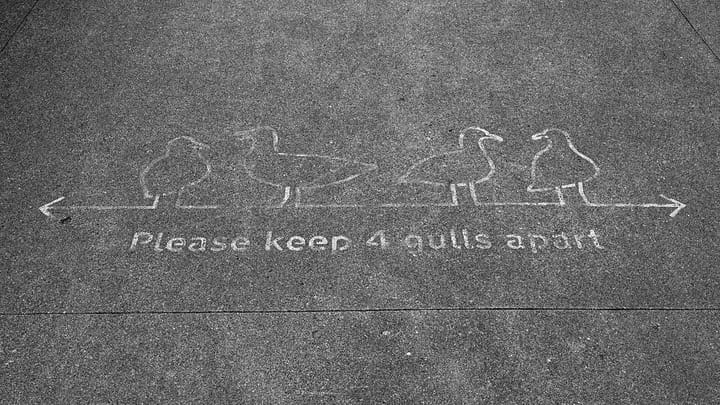I Can’t Relate

Left populism and its vicissitudes
With the continued breakdown of the neoliberal order, “populism” has gained renewed importance in contemporary political discourse. Many leftists see great promise in populism, arguing that the left should take advantage of the affective politics that today are considered the domain of the right. Conjuring up images of William Jennings Bryan, Thomas E. Watson, and other dynamic orators of the 19th-century agrarian South, the call for a populist renewal on the left evokes images of a sweeping cultural revolution built through the articulation of shared exploitation.
The thought leaders who have taken up the mantle of left populism in the 21st-century, however, argue that class warfare is no longer central to the struggle against oppression. Instead of orienting politics around the conflicts that arise from class structure and position, contemporary left populists argue, leftists should orient towards a shared affective experience of oppression based on a much broader constellation of identity categories (gender, race, sexual orientation, etc.). In her pamphlet For a Left Populism, Chantal Mouffe states that a left populist strategy
requires the establishment of a chain of equivalence among the demands of the workers, the immigrants and the precarious middle class, as well as other democratic demands, such as those of the LGBT community. The objective of such a chain is the creation of a new hegemony that will permit the radicalization of democracy.
In other words, today’s leftists should orient away from a focus on class struggle and towards a competition with the forces of oligarchy in the cultural domain. For Mouffe and other left populists, this means seeing class oppression not as structuring other forms of oppression but as one type of oppression among many. Rather than building class consciousness and support for working-class struggles specifically, Mouffe is arguing for the reformulation of a “common sense” from which progressive political reform will result. In place of the traditional strategy built around the recognition that the working class, as the exploited class, has an interest in seizing control over production and putting a halt to the intrinsic exploitation of capitalist accumulation, the new left populists suggest change will follow from the development of new affective links between various groups of people who experience themselves as oppressed on the basis of identity.
Left populism has drawn criticism from more traditional leftists on both theoretical and strategic levels. The substitution of cultural hegemony for material control contradicts the basic orientation of traditional leftist theory, but more concerning to traditional leftists is the strategic vulnerability that this maneuver entails. By deprioritizing class struggle, left populism gives up the power of the working class to withhold its labor power—abandoning this key tactic in favor of a more mystical strategy that conflates doing and feeling.
In looking to understand the new left populism and its critics, we are particularly interested in the work of Anton Jäger, who argues that Mouffe’s left populism fundamentally ignores the historical tradition of populist politics in the United States. While we believe that Jäger’s critique is foundational, we don’t think it fully comprehends the psychological appeal of left populism today. We argue that a productive critical response to left populism must include an understanding of its social-psychological appeal to neoliberal subjects, an appeal that can only be broken through by class-oriented organizing and socialist strategy.
American populism in history and in fantasy
Anton Jäger counters Mouffe by demonstrating that the association of contemporary populism with broad identity-oriented coalition politics—and with affective identity generally—is rooted in a historical fallacy. Modern populists simply misunderstand the history of populism, Jäger argues, describing how 19th-century Southern agrarian populism was a movement based not on identity or the policing of in-groups and out-groups, but on class struggle and class consciousness. In response to the call for a renewal of left populism oriented towards affect-based “radical democracy,” Jäger looks to the actual history of populist movements—and in so doing, seeks both to understand populism in its original class-warfare terms and to trace a later distortion of the concept of populism by the historians and those they influenced in political science (such as Mouffe).
The 1892 People’s Party, Jäger writes, attempted to organize both black and white workers according to their economic self-interests and not just by moral appeal. Paraphrasing Southern populist and People’s Party cofounder Thomas E. Watson, Jäger notes that
black and white tenants did not necessarily need to cooperate out of some mutual sense of moral duty, or a shared Southern identity. Neither was it a question of ‘affect,’ or ‘libidinal investment,’ appealing to the emotional goodwill of both sides. Rather, it was their shared material stake in the necessity of agrarian improvement that made possible their political cooperation.
Although the movement might have had its flaws, Jäger admits, it was fundamentally materialist and not idealist in its organizing and reasoning. Later historians would miss the materialist base of the populist arguments used by People’s Party organizers and construct a fantasied populism—one that never existed in the original movement.
This false understanding of populism, Jäger goes on to say, arose during the McCarthy era as a way for political theorists (many of whom were cosmopolitan liberal intellectuals) to theorize the historical roots of American anti-communism—from the American prairies to the McCarthyite threat—that soon after the war was casting these political theorists themselves as a threatening “other.” According to this new formulation, Southern agrarian populists created an affective model for generating and organizing mass discontent which was reappropriated by McCarthyites to stoke popular unrest and direct it against alleged communists. The theory of populism that developed from this formulation, while having no verifiable basis in the actual history of populist movements, sets the tone for a mistrust of mass movements overall.
This mistrust of the masses has had real legs, and we still see it on display in contemporary news media and in the establishment wing of the democratic party. This non-materialist theory of the origins of American populism also provides an intellectual basis for technocratic “horseshoe theory” arguments: that right and left mass movements are variants of an untrustworthy populism that, because of their populism, invariably meet each other on anti-semitic and otherwise anti-other terrain. According to this modern reconception, born as an anxious response to McCarthyism, political identity is constructed not materially, around shared class interest, but affectively and ideologically—by identification as part of a common group that stands in opposition to often-malleable “others” (elites today, immigrants tomorrow).
This distorted definition of populism maintains a hold on the imagination of political scientists because it resonates with an idealistic liberal worldview—one that erases class—and not because it has any basis in history. By doing a serious intellectual history of the populist movement, as Jäger does, we can see the false liberal roots of Mouffe and Laclau’s left populist fantasy. While Mouffe and Laclau argue that mysterious political forces are moving and determining the discourse—forces which the right understands how to leverage but the left does not—Jäger’s historical analysis reveals how contemporary populists, unlike those of the 19th century, have accepted a broadly classless conception of politics, and gives historically-grounded reasons why we should be skeptical of this position.
Why this populist fantasy today?
Contemporary populist politics might not be materially-based politics but they are the product of material historical processes. Indeed, we would expect any contemporary populist project to reflect the fact that modern political conditions are qualitatively different than those confronted by the 19th-century populist parties. We need not only consider why populism has emerged on the left once again, but to question what about the contemporary neoliberal order causes populism to appear in its current form.
Jäger characterizes the modern state as “hard and hollow,” writing that “The last thirty years have also witnessed a far-going weakening of the state’s internal sovereignty—the ties that link states to institutions such as unions, churches, and parties, and allow the latter to exercise power over the former.” “Put briefly,” Jäger continues, “European states are ‘hard but hollow’ … powerful and capacious, mainly in their executive branch, but insulated from any pressure from below.” With this framing in mind, we should ask: what political tactics are and aren’t available when confronted with an environment that is “hard and hollow”—like the totalizing neoliberal order in which we find ourselves today?
From a materialist perspective, we would expect political resistance to mirror the circumstances from which it emerges. Because people meet, form groups and organize and in the way they live, politics often resembles workplace culture. Early mass parties, as Marx observed, mimicked the organizational form found in industrial factories in order to counter the forces they confronted politically. A hard and hollow economic order, then, will give rise to a hard and hollow political response—highly individualized, disconnected, and built on the kind of subject-as-consumer neoliberal model that prioritizes personal identity and expression above collective action. It is therefore not surprising that political movements today organize themselves online or through consumer interfaces, with a hyper-focus on the kind of personal ‘branding’ that these interfaces are designed to capitalize on.
But while there seem to be obvious reasons for mass parties to mimic industrial organization in the industrial era, the same cannot be said of consumer culture today. Certainly, it makes sense that neoliberal subjects are drawn to political movements which market themselves using the tools of popular culture—but it doesn’t follow that this model of organizing will sustain ongoing political progress when so many elements of neoliberal culture are deliberately designed to militate against such systemic and collective change. Even less clear is why left populist movements today actively celebrate this kind of political engagement even when it runs counter to their ostensible goals. Phenomena like this can only be explained by an analysis of neoliberal subjectivity and the modes of thinking it encourages or forecloses.
Hard and hollow subjectivity
To understand these seemingly contradictory dynamics, it is important to consider how our hard and hollow neoliberal order registers subjectively. When experiencing an environment which is intensely punitive, has little to provide, but upon which one’s survival depends, people develop predictable defenses—fantasies of how their environments work—and in various ways retreat into these fantasies, which filter their perceptions of the world and can provide a sense of safety. Or, if not safety, at least predictability—the truly new being far scarier than repeated contact with the evils one is familiar with. Psychoanalyst Donald Meltzer described the resulting subjective reality as the “claustrum.” These defensive fantasy-lenses are structured around three primary themes: 1) a dreamy apathetic denial of problems, 2) a compulsive need to convert everything into a bacchanalian party, and 3) a preoccupation with exposing and unmasking “falseness.” What draws one into the claustrum is the need to replace the confusion of reality with some kind of predictable, repeating experience that will reduce anxiety or at least provide a familiar cast of characters. Unwittingly, when people do this they are also protecting the very environment that pushed them to need this defense from undergoing any real change. Regardless of which of the three defensive strategies predominate in the claustrum-dweller, seeing reality only through these lenses cuts them off from other people, from emotional engagement with the world, and from reality in general.
In psychoanalytic terms, then, we might understand neoliberalism as a “claustral” environment—a way of thinking that does not admit any outside reality and that does not provide adequately for those living inside of it. More concretely, contemporary neoliberalism seems—to neoliberal subjects—impervious to political intervention. We see this preconception in the Fukuyama- or Thatcherite “end of history” declarations: Neoliberalism is (to neoliberals) the only socio-political order conceivable. When confronted with its manifold contradictions, the impulse is not to rethink but to continue repeating the same ideas that emerge as contradictory (what we might compare to a “repetition-compulsion”). Symptomatically, these conditions express themselves as bland denial (complete apolitical apathy and withdrawal), in bacchanalian political non-action (undirected demonstrations, excited broadcasts that all end in “!!!,” the general substitution of being seen or heard for politics generally) or in an emphatic lament that if the truth will just out, then everything will be okay.
The left populist’s response to the neoliberal situation appears, in this framing, as a claustral defense which tacitly accepts the neoliberal order by inviting everyone to a flattened bacchanal with the hopes that the unity of various oppressed groups regardless of class will result in a capable change-agent. Despite the fact that members of such a coalition might have conflicting economic incentives, if we can all just recognize one another (the thought goes) and legitimate one another’s identity, then in our collective ecstasy a positive new reality will emerge. As a substitute for class solidarity, then, we see a compulsory excitement; a continually “hyped” model of organizing that extinguishes negativity and locates affective fervor as the catalyst for political change. We see examples of this at leftist organizing or progressive campaign events across the country: everyone is so excited, so happy to be together, and so swept up in their shared emotional experience that there simply isn’t space for strategic quibbles. And even if there were, it would be a tremendous bummer.
Because left populists do not locate oppression as the result of non-subjective structural dynamics, and instead see class as just another identity category, the left populist project becomes not a confrontation between classes—not a strategic withholding of labor power to force change—but a sort of amorphous yelling for recognition that, if we believe in it, will magically change culture.
But by inviting a denial of class and in its place suggesting everyone can wear their identification with oppression to the counter-hegemonic ball, the politics built around class conflict that would be needed to make a real change is avoided. Moreover, a political program built on affective (rather than structural) links opens itself up to the constant risk of dissolution. The moment a disagreement or conflict erupts, the entire coalition risks fracturing along brittle and often irreparable lines as people go from feeling included and seen to feeling excluded and unseen. The excited bacchanalia of the hyped left populist party often ends in predictable tears—with accusations of misrecognition, and active exclusion of those who can’t or won’t keep up with whatever floating signifier signifies knowledge of the latest link to be added to the “chain of equivalencies.”
How can we relate?
Jäger’s historical critique of populism, as comprehensive and insightful as it is, is perhaps not the most productive way to engage with the driving forces behind Mouffe and Laclau’s vision. In its most general form, Jäger’s critique pertains to legitimacy: contemporary left populism is not heir to the political tradition it claims to be. Jäger may indeed be correct that the modern conception of populism descends from McCarthy-era suspicion of popular opinion, but that critique does not necessarily put him in conflict—or even conversation—with those who advocate a left populist strategy today. Instead of delegitimizing contemporary left populism on the grounds of its historical ignorance, our task here should be to call attention to its strategic shortcomings and its misapprehension of the root causes of oppression in capitalist society. That is, we should highlight the distinction between the liberal roots of left populist strategy and the radical roots of socialist organizing.
When attempting to engage with an empty theory of politics, one temptation is to undertake projects, like Jäger’s, of revealing various political rivals as false. As intellectually fruitful as Jäger’s history is, we fear a genealogical critique alone will not tarnish the appeal of left populism to neoliberal subjects. To the claustrum dweller, the only way to see this kind of engagement is as an effort to unmask them, and their response will be to mirror our unmasking by unmasking it in return—as racist, transphobic, misogynistic, or that evergreen “class reductionist.”
The appeal of left populism today does not reside in its historical or strategic correctness but in the way this model of political organizing fits the contours of our hard and hollow environment. Jäger’s concern with etymology—the rightness of the name and the confusion surrounding its origins—mirrors a clinical treatment that recognizes the contours of psychotic terrain but resists entering into it. And who can blame this approach? The psychotic neoliberal order is a terrifying, claustrophobic, confusing mess and so are many of the nominally progressive ideas about how to change it. But along with historical critique, we also need better strategies of movement-building, strategies that acknowledge the reality of capitalist exploitation and thereby construct materially-grounded solidarity along class lines and contribute to class consciousness and class formation. Left populism remains an impoverished political program when it attempts to depart from these goals as the means for radical change.
Nevertheless, no one today can avoid being (at least partially) ensconced within the neoliberal system. Those of us who agree with Jäger are products of this same system and are also prone to the same defenses. Meltzer explains that becoming intensely focused on ‘unmasking’ imposters—and seeing this as an end in itself—is yet another defense against our developmental dependence on hard and hollow environments that don’t, won’t or can’t meet our needs. Imposters who falsely promise political change might indeed exist, but the project of tearing away their masks to expose the emptiness underneath is still built on the fantasy that this unmasking is itself a way of achieving political progress. As Meltzer argues, it is not enough to be ‘correct’ if there is no clinical contact that allows for something new to happen.
■
Benjamin Fife trusts a few things that are unpopular, and also his Saint Bernard.
Taylor Hines distrusts everything popular, except his Saint Bernard.



